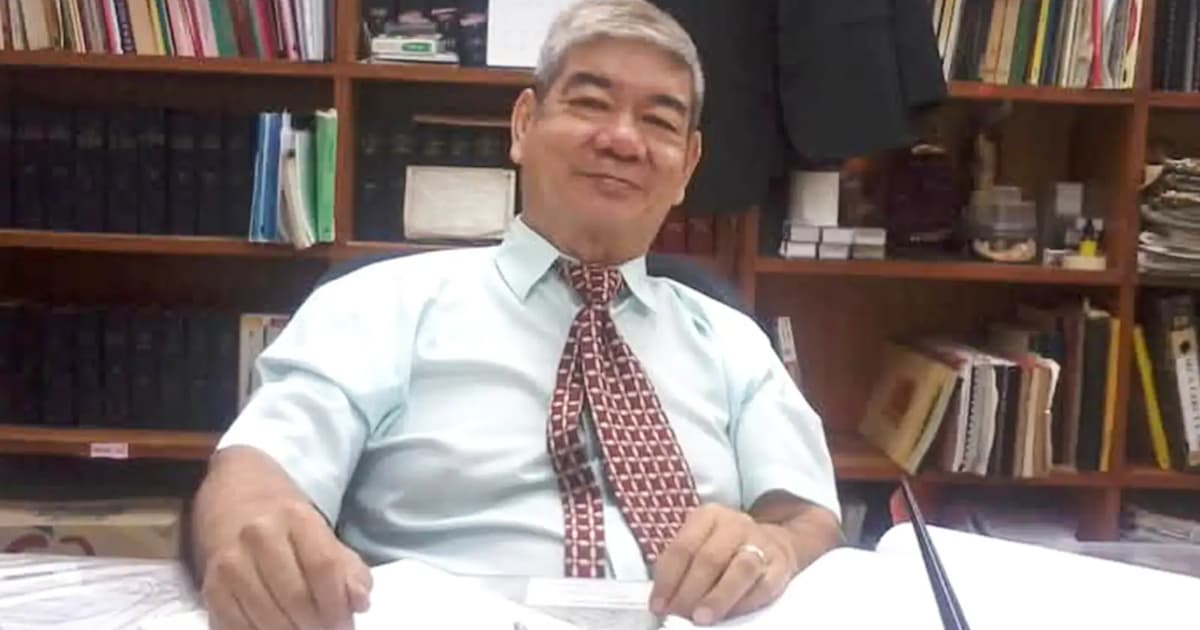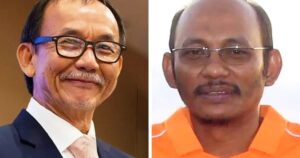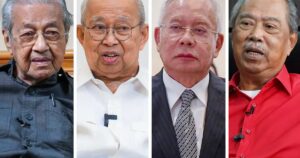
In January 2006, the Chinese children of an 88-year-old Muslim woman, Nyonya Tahir, sought to bury her according to Buddhist rites.
They wanted to fulfil Nyonya’s written declaration that she was Buddhist and wished to be buried as one.
Nothing so bold had ever been attempted in the shariah court.
Nyonya was born in 1918 to Muslim parents in Melaka, but was later adopted by a Chinese family and raised as a Buddhist.
She kept her Malay name and continued to practise Buddhism after marrying Chiang Meng in 1936. Their eight children lived as Chinese.
Confusion arose when Nyonya’s children reported her death to Tampin police and requested a burial permit.
Since Nyonya was officially a Muslim in her identity card, the police alerted the Negeri Sembilan religious affairs department.
The department filed for a declaration on her religious status from the shariah court.

Nyonya’s body lay in the mortuary until the case was heard.
The religious bureau of the Malaysian Chinese Association (MCA), led by Tan Chai Ho, stepped in.
The brains of the team was Koo Chin Nam, Malaysia’s first non-Muslim shariah lawyer and the bureau’s deputy chairman.
Kevin Koo Seng Kiat said his father, who died on April 4 aged 78, respected individual dignity and societal harmony, and advised MCA’s top leadership on Islamic affairs.
The Nyonya Tahir hearing
Kevin recalled that Nyonya’s case marked the first time that a non-Muslim had testified in a shariah court in Malaysia.
The court allowed two of Nyonya’s children, Chiang Kwai Ying and Chiang Ah Fatt, to prove that she had left Islam.
They were also allowed to submit documents in which she stated she had a Chinese name, Wong Ah Kiu, and wanted to be buried as a Buddhist.
Kevin said his father interviewed the family, compiled their evidence and prepared submissions for the court’s consideration.

In the shariah high court, the lead counsel for the plaintiffs was Siti Harlina Shahran, while Koo and his son kept a watching brief for the family.
The court heard Nyonya prayed as a Buddhist, ate pork and married a Chinese man who never embraced Islam.
She had tried to change her religion and name officially in 1986, 1991 and 1998, but was denied.
The court also heard about Nyonya’s interview with a Melaka mufti, who had concluded that she had chosen to leave her faith.
The judge Mohamad Shukor Sabudin declared Nyonya was a Buddhist at the time of her passing, and that her body should be handed over to her children.
She was buried five days after her death next to her husband in the Chinese cemetery in her birthplace of Simpang Ampat, Alor Gajah.
Relief amid tension
Kevin said his father’s efforts reinforced his belief that the shariah court was not a closed bastion of Islamic jurisprudence but rather a forum for justice accessible to all Malaysians.
The then president of Malaysian shariah lawyers association, Muhamad Burok, remarked that the decision symbolised the court’s commitment to fairness and justice.
“In future, we should use this as a landmark case to give everyone an equal opportunity to seek justice,” he told the media.
Religious minorities were reportedly relieved by the decision that however contrasted markedly with one from the shariah court a month earlier.
In December 2005, religious tension was sparked after a shariah court ordered Mount Everest climber, Maniam Moorthy, to be buried as a Muslim despite protests from his Hindu wife.
The shariah court refused to hear an appeal by the mountaineering hero’s widow, S Kaliammal, because she was not a Muslim.
Kaliammal said her husband ate pork and celebrated Hindu festivals, and that she was shocked to learn about his conversion after he lapsed into a coma at the age of 36.
Muslim officials held he had converted to Islam in 2004 and changed his name to Mohammad Abdullah without informing his family.
The civil court said the constitution does not allow it to overrule the verdict of the shariah court.
The case threatened racial and religious harmony, with an outcry and complaints that Kaliammal never had a chance to argue her case.
Malaysia’s non-Muslim cabinet ministers presented an unprecedented and controversial memorandum calling on then prime minister Abdullah Ahmad Badawi to protect the rights of religious minorities.
The ministers later retracted the memorandum after colleagues slammed the move as a breach of protocol.
Abdullah pledged that his government would review laws relating to religious conversion.
Then, a big blow
In 2011, Victoria Jayaseele Martin, failed in her attempt to practise as a shariah lawyer.
A high court judge in Kuala Lumpur dismissed her challenge to the decision of a religious council that all lawyers in Islamic courts must be Muslim.
Martin said she wanted to provide non-Muslims with matters in the shariah court with fairer representation.
She holds a diploma in shariah law and practice from the International Islamic University Malaysia (IIUM),
Kevin said during Martin’s case, the question of any non-Muslim in the country practising shariah law was raised.
“My father let her borrow his certificate to show the court that he was practising shariah law.
“However, after that, the licensing authority in Selangor refused to renew his licence, and apologised for their decision.
“They did not change their decision even when he appealed. Coincidence? Maybe, maybe not,” said Kevin, an IIUM law graduate.
Kevin said his father was saddened to lose his licence but continued to play a key role in MCA’s shariah law and policy implementation special task force, and to keep a watching brief in selected cases.
Pride of Segamat
Koo’s parents were uneducated, and had a hard life working to make ends meet. His mother cleaned houses and his father was a lorry driver.
After getting a teaching diploma, he earned a bachelor of arts degree at Universiti Sains Malaysia (USM) in Penang.
Kevin said at USM, his father got to know Professor Ahmad Ibrahim, who was a lecturer there.

Years later, when he was a teacher in Seg Hwa secondary school in Segamat, Johor, he visited the law library at Universiti Malaya (UM), where he bumped again into Ahmad.
Ahmad, UM’s dean of the law faculty, was a key figure in the development of shariah law and its integration with civil law in Malaysia
The founder of the Ahmad Ibrahim Kulliyyah of Laws at IIUM convinced Koo to study law.
Koo was pleasantly surprised to meet Ahmad at the university entrance interview and pursued law at the newly opened IIUM.
On April 1 1989, Koo was called to the bar and Ahmad was by his side. When Ahmad died in 1999, at the age of 83, his family asked Koo to attend his burial.
Koo did not neglect his studies and went on to study the diploma in shariah and practice and also a master in comparative laws, both at IIUM.
He later set up Messrs Koo Chin Nam & Co, doing a mix of shariah cases, mostly family law matters, criminal law and civil litigation.

Koo joined MCA in 1987 and served as the Putrajaya MCA division chairman between 2005 and 2018.
He spoke out about the danger of mixing politics and religion in a multi-religious country and urged moderates to reject political Islam.
Kevin said: “Many have described him as a principled man, a fierce fighter and straight-shooter, who genuinely cared for his friends.”
His caring spirit was evident as president of Lembah Damansara Rotary Club, and legal advisor for a number of Chinese temples and associations.
“My father will always be my hero. I hope that I can live up to his legacy,” said Kevin.
Koo is survived by his wife Chan Seow Khum and sons Kevin and Leo.






